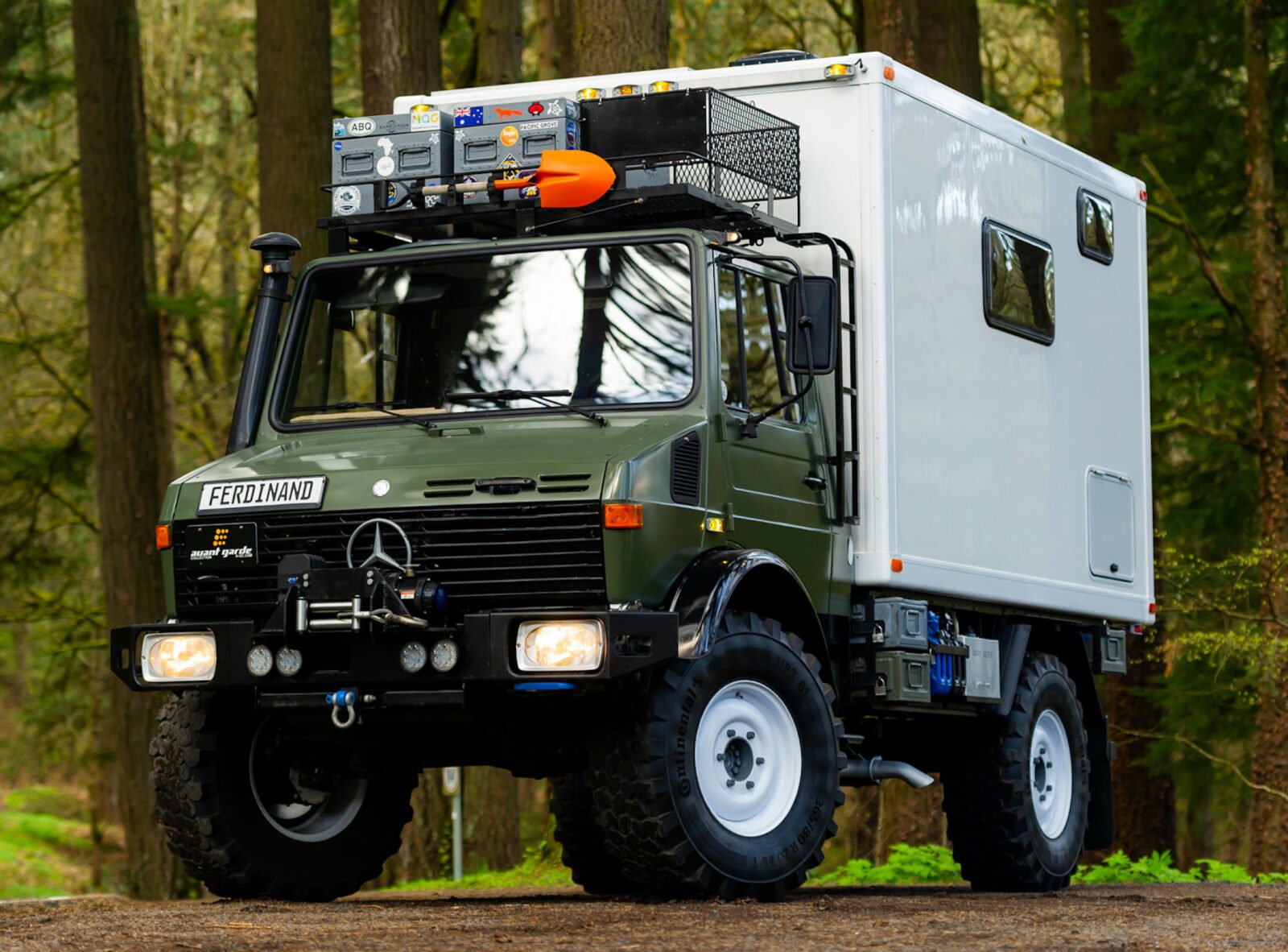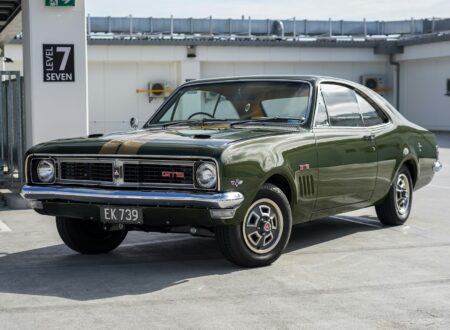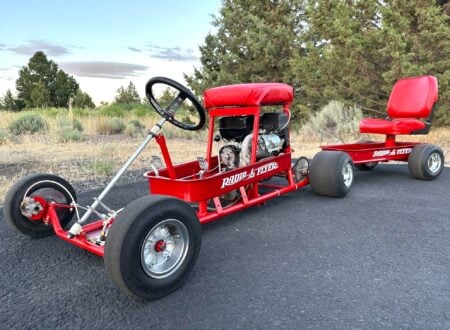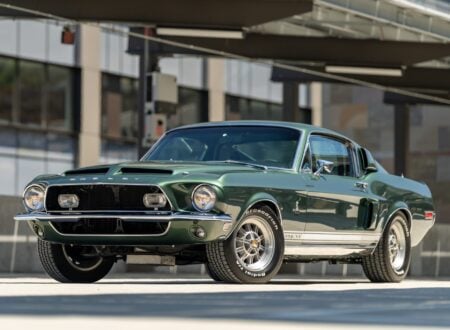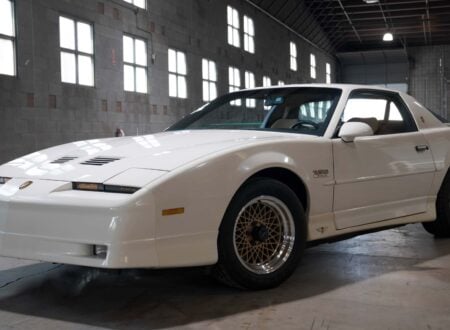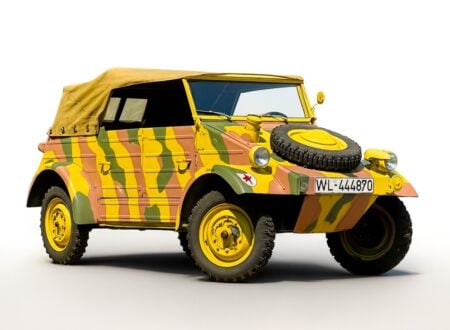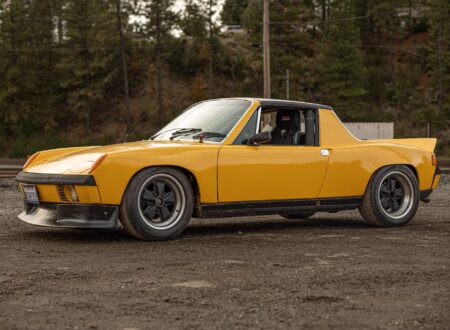This Mercedes-Benz Unimog has been rebuilt for expedition-style overland trips, it comes as a fully self-contained home on wheels with its own kitchen, bathroom, living space, and bedroom. It has a 600 watt solar array on the roof, and a General Ecology water filtration system.
The Unimog is a popular platform for overland campers due to its famous off-road ability, and the fact that it can carry significant weight on the back without breaking a sweat. This camper was professionally built by Wabi-sabi Overland in 2017 and it’s now being offered for sale out of Portland, Oregon.
Fast Facts – A Mercedes-Benz Unimog Expedition Camper
- The Unimog (Universal-Motor-Gerät) concept was developed by German engineer Albert Friedrich in 1946 after WWII. He envisioned a multi-purpose, all-terrain vehicle to aid in agricultural and industrial tasks. The first prototype was built in 1947 by the engineering firm Erhard & Söhne, featuring four-wheel drive, equal-sized wheels, and a reliable diesel engine.
- In 1951, production of the Unimog began under the Boehringer brand. The first model, Unimog 70200, was used in farming, construction, and military roles. It could replace a tractor and perform all the same essential jobs around the farm. In fact the track width was designed to fit perfectly across two rows of potatoes in a field.
- Daimler-Benz (now Daimler AG) acquired the Unimog production rights from Boehringer in 1955. The acquisition led to increased production capacity and the introduction of the Unimog 404 series, specifically designed for military use.
- A series of upgraded Unimog models would follow under the Mercedes-Benz brand including the 411, 406, 421, 407, 417, 435, and 405. The model remains in production today and is used broadly in military, forestry, fire fighting, and industrial roles.
- The vehicle you see in this article is a Unimog 435, specifically the Unimog U 1300 L variant. It was built into a fully-equipped home on wheels in 2017 by Wabi-sabi Overland, and it now has everything you need for prolonged trips off the grid almost anywhere in the world.
The Unimog: A History Speedrun
The Unimog, a versatile, all-terrain vehicle with a history dating back to 1946, was conceived by German engineer Albert Friedrich. It was designed as a multi-purpose vehicle to aid in rebuilding post-WWII Germany that could be used by farmers for both tractor and cargo hauling roles. Interestingly this same philosophy was being applied in England for the creation of the first Land Rover.
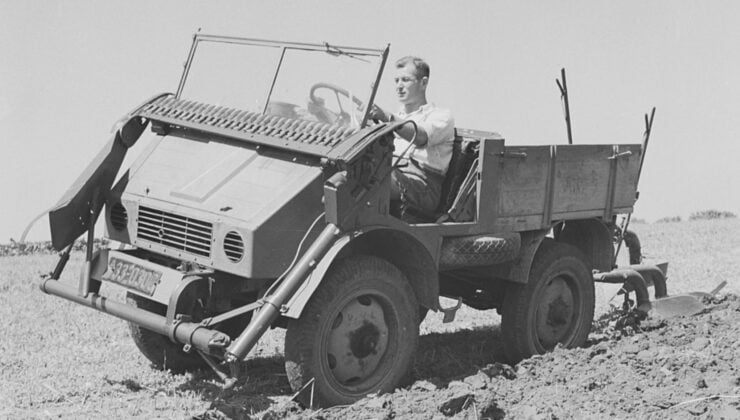

By 1947, the first prototype of Albert Friedrich’s design was built, showcasing equal-sized wheels, four-wheel drive, and a robust but simple diesel engine. In 1951, production began under the Boehringer brand, leading to the introduction of the first model, Unimog 70200. Though limited in production, this model demonstrated Unimog’s versatility, which appealed to a range of industries, mainly farming and construction with some military applications.
Daimler-Benz acquired the Unimog production rights from Boehringer in 1955, resulting in increased production capacity and an expanded lineup. The Unimog 404 emerged as a pivotal model during this period, designed specifically for military use. With over 64,000 units produced, it remains the most successful Unimog variant.
The Unimog 435 Is Introduced
Launched in 1974, the Unimog 435, also known as the U1300L, quickly became one of the most popular and versatile models in the Unimog series. Initially designed for military use with the German Bundeswehr as its primary customer, the 435 boasted an impressive payload capacity and exceptional off-road capability. These attributes were due in part to its powerful OM 352 diesel engine, portal axles, and coil-sprung suspension front and back.
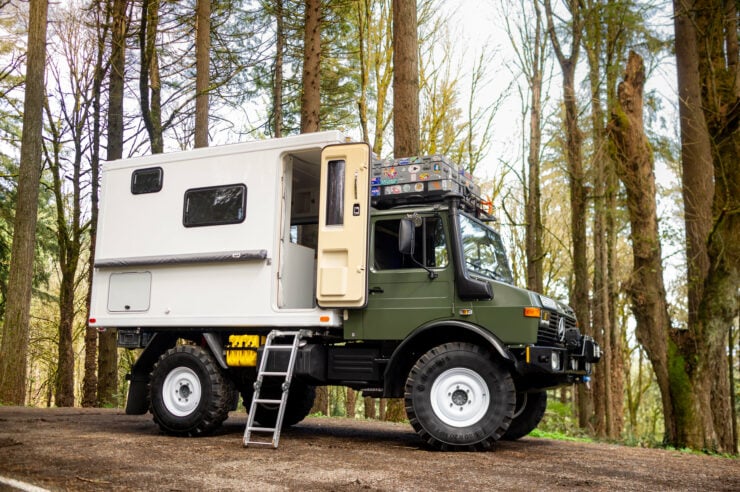

Customizability was one of the Unimog 435’s strongest suits, offering a variety of body configurations and specialized equipment options. This adaptability enabled it to cater to diverse needs, such as troop transportation, cargo hauling, and communication systems support. The robust design and unparalleled off-road performance of the 435 also led to its adoption in civilian applications, including disaster relief, forestry, and expedition vehicles.
The Unimog 435’s impact transcended German borders, with military and civilian organizations worldwide recognizing its potential. Its versatility and durability made it a prime choice for use in extreme conditions, from arctic exploration to desert operations. Production of the 435 continued until 1993, but its influence can still be seen in the modern Unimog lineup today.
The Mercedes-Benz Unimog Expedition Camper Shown Here
The vehicle you see here started out as a standard 1987 Unimog U1300L, it was acquired by Wabi-sabi Overland in 2017 and a rebuild began to turn it into a genuinely capable continent-crossing expedition camper.
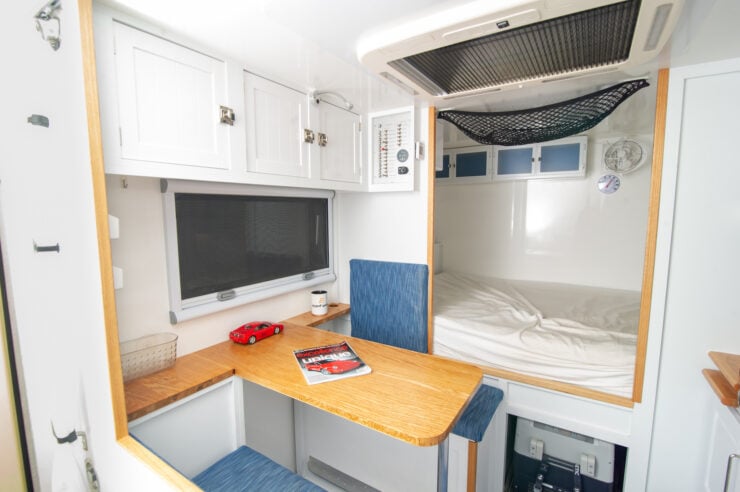

A camper section was added to the rear which is accessible through the cab, a roof rack was added on top of the cab for additional storage space with a ladder down the side, and a six solar panel array was added to the top of the accommodation offering 600 watts of power.
Inside the camper you’ll find a double bed at the front, a kitchenette, a dinette, a bathroom with a toilet and shower, and plenty of storage space. The kitchenette is equipped with a sink that has running water, a dual gas burner stovetop, some counter space, and a refrigerator.
The dinette has seating for four, and the interior is finished in an attaching combination of natural wood with blue upholstery, and white surfaces throughout.
Power is provided by a 6.0 liter turbodiesel inline-six which is paired with an 8-speed manual transmission, a dual-range transfer case, and of course this famous Unimog portal axles front and back with locking differentials.
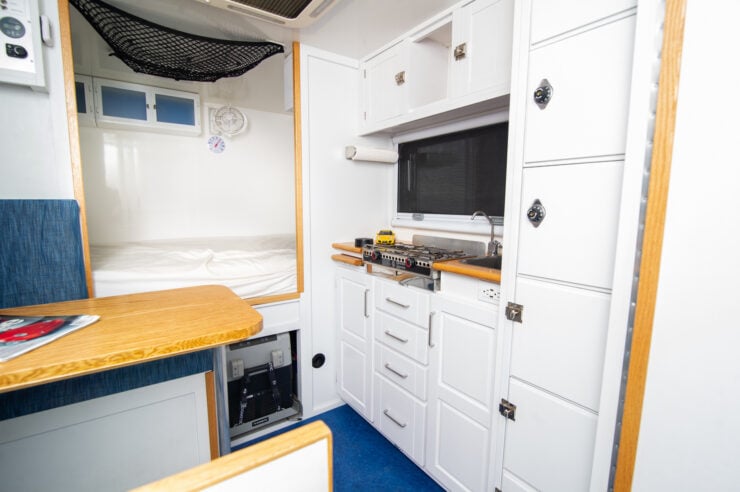

For cooler climate use the vehicle has a Planar 2D diesel air heater, double-glazed windows, and a Webasto engine block pre-heater. Both gray and freshwater tanks are installed, as well as a General Ecology water filtration system that allows you to safely treat water for use when you’re away from regular plumbing.
On the rear of the vehicle you’ll find a spare wheel and tire, Marston Mat sand ladders, and a rearview camera system. There is an ARB awning on the side, and a front-mounted winch, and it’s fitted with LED lighting throughout.
The vehicle is now being offered for sale out of Portland, Oregon on Bring a Trailer, it has recent service records, owner’s manuals, a full set of shop manuals, a clean Carfax report, and a clean Oregon title.
If you’d like to read more about it or register to bid you can visit the listing here.
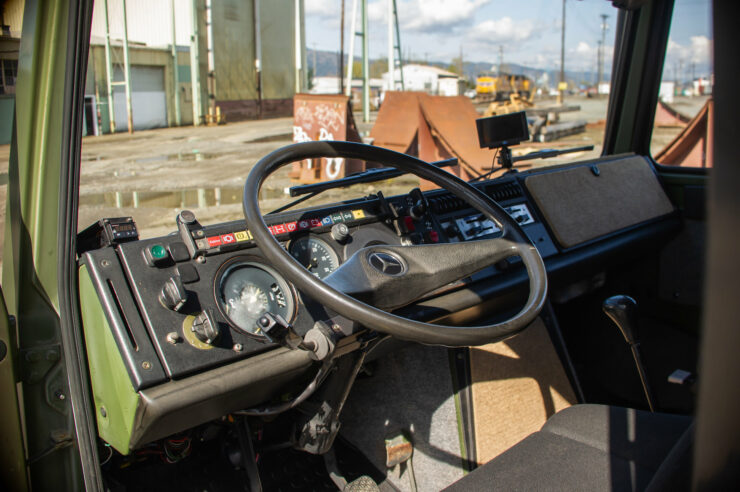
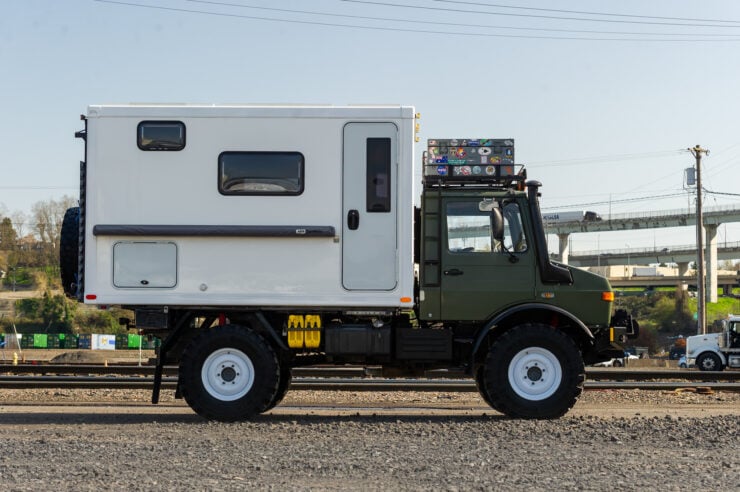
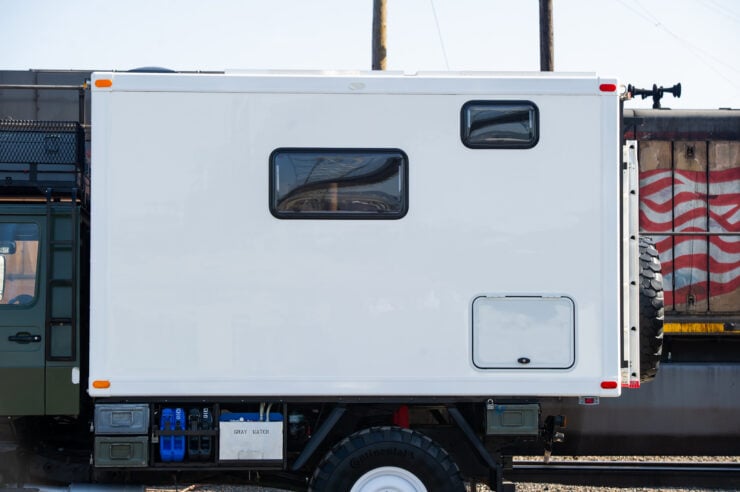
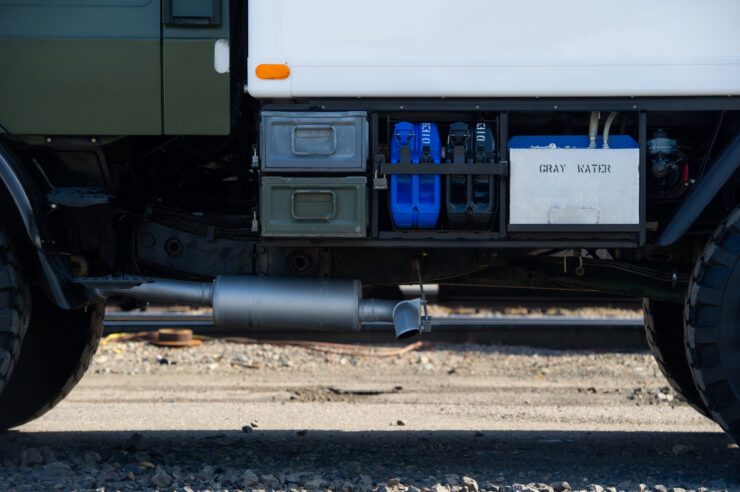
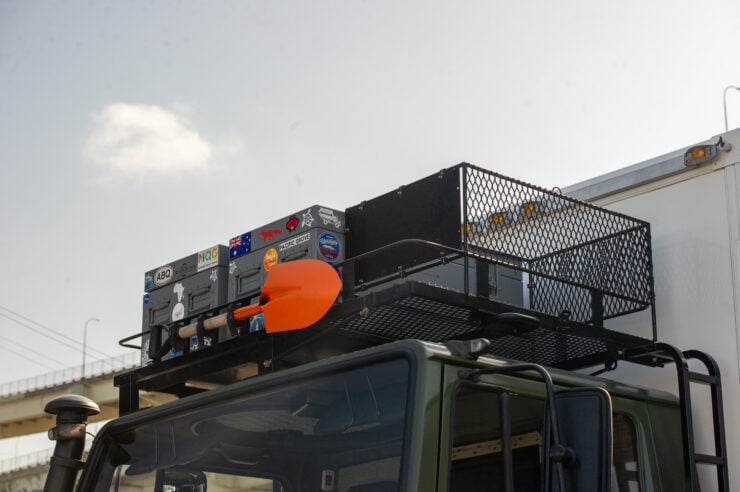
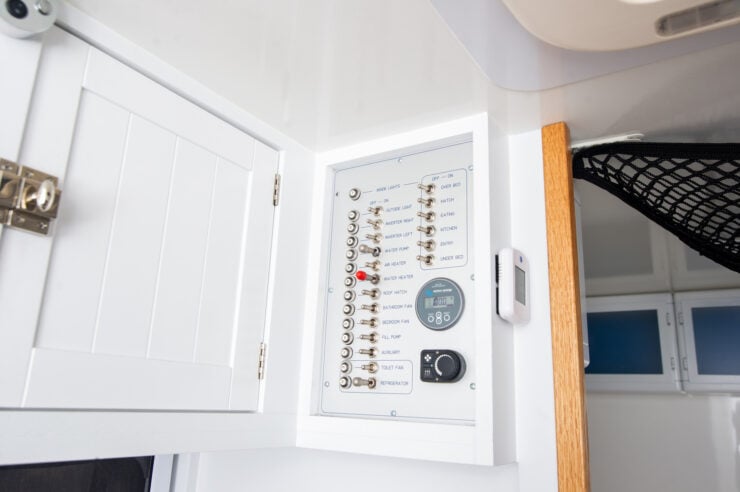
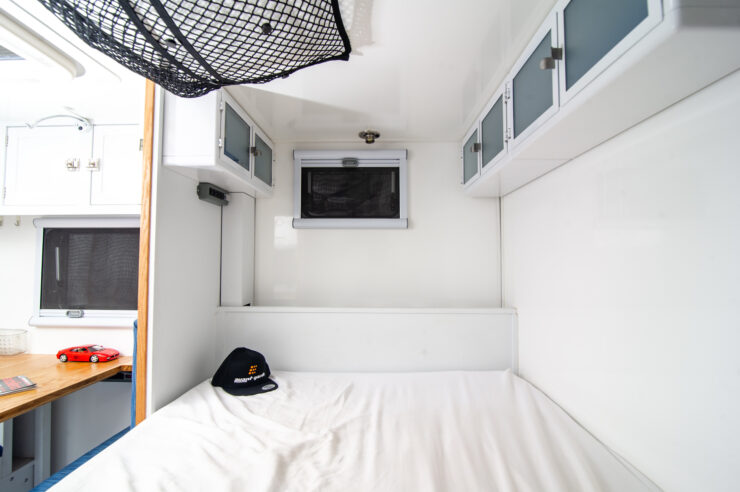
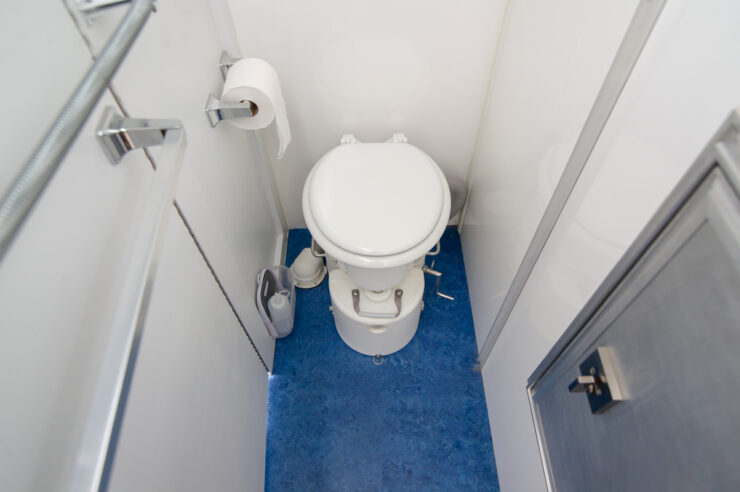
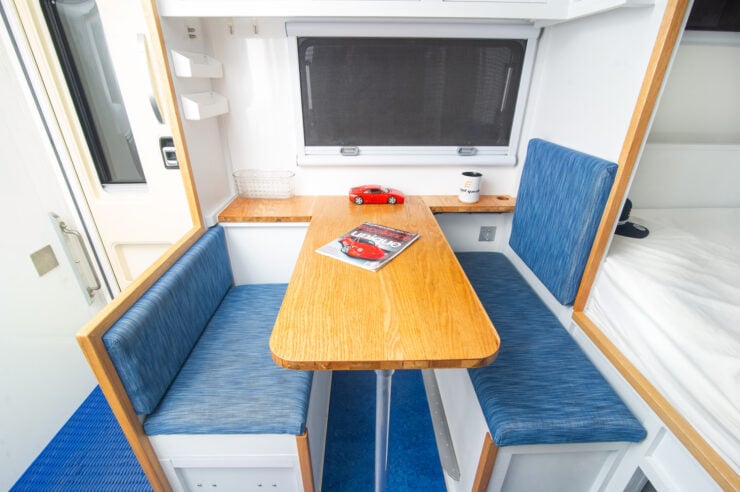
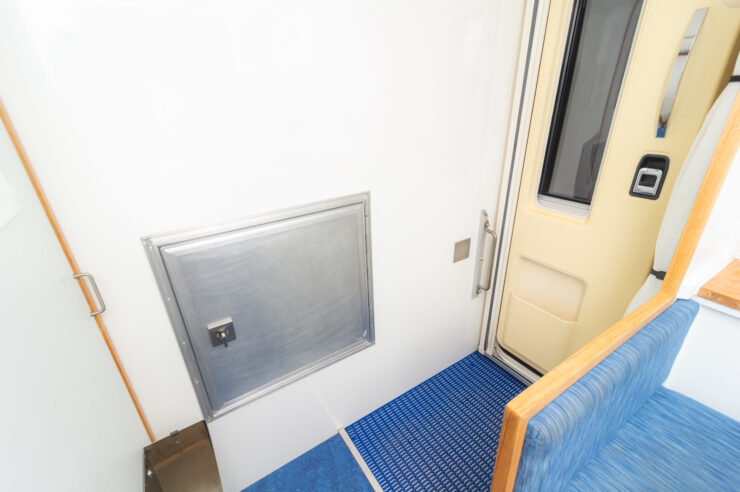
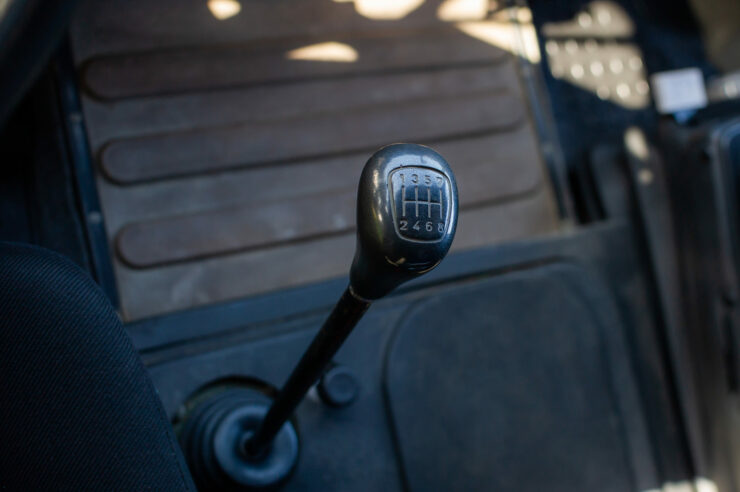
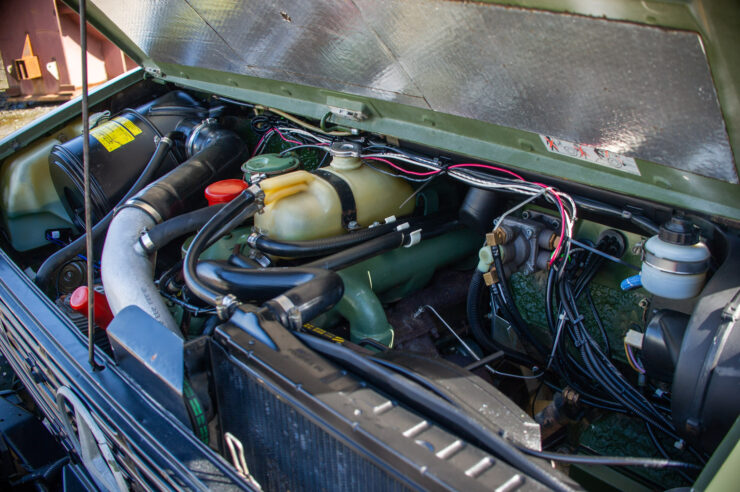
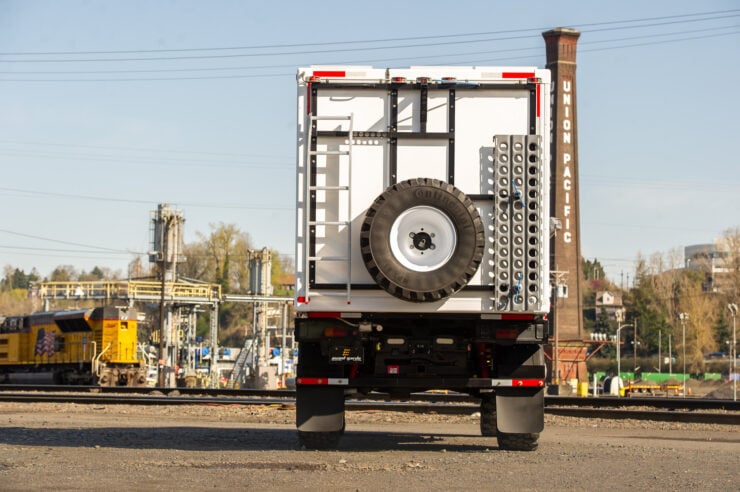
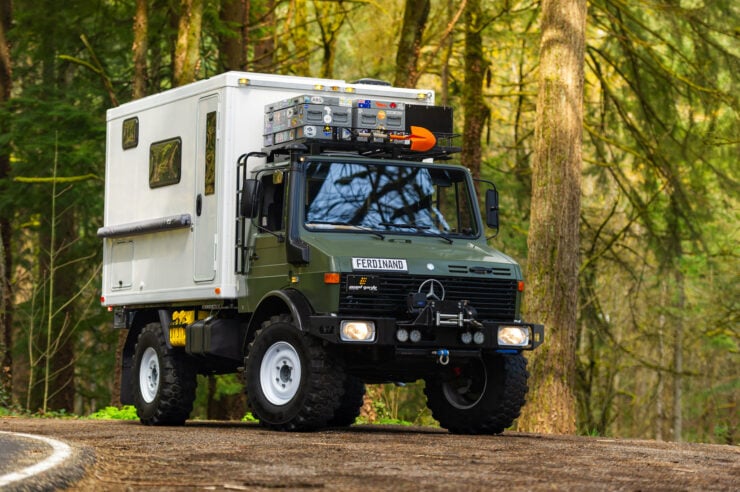
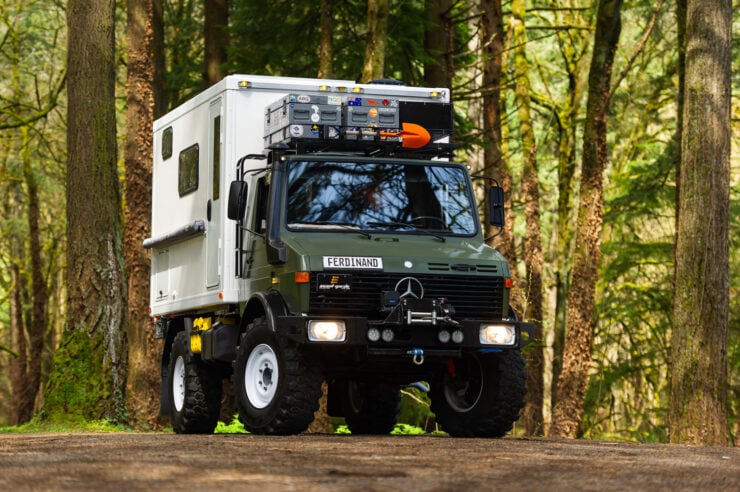
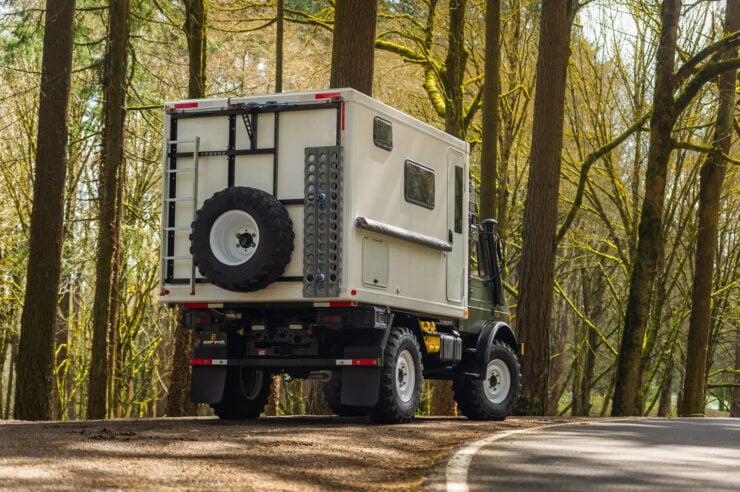
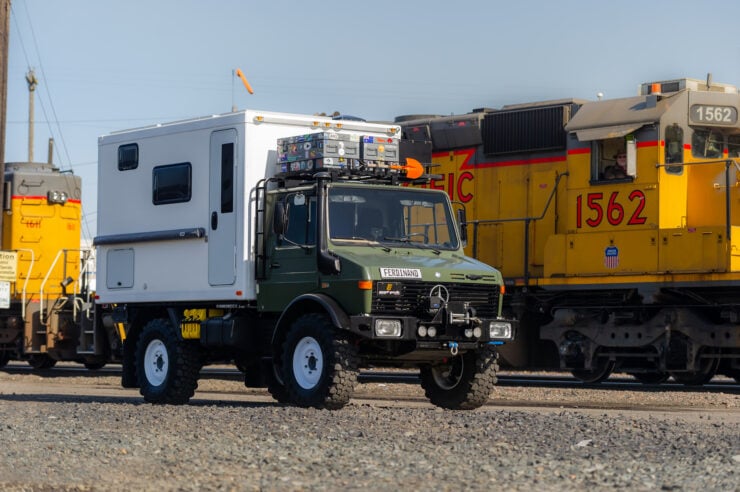
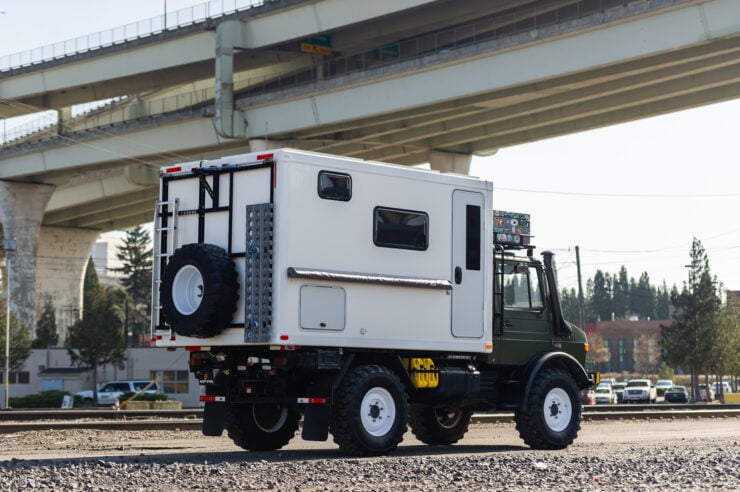
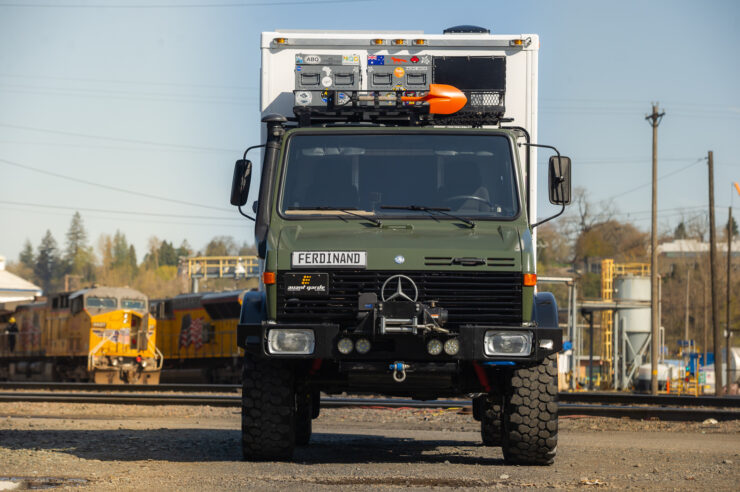
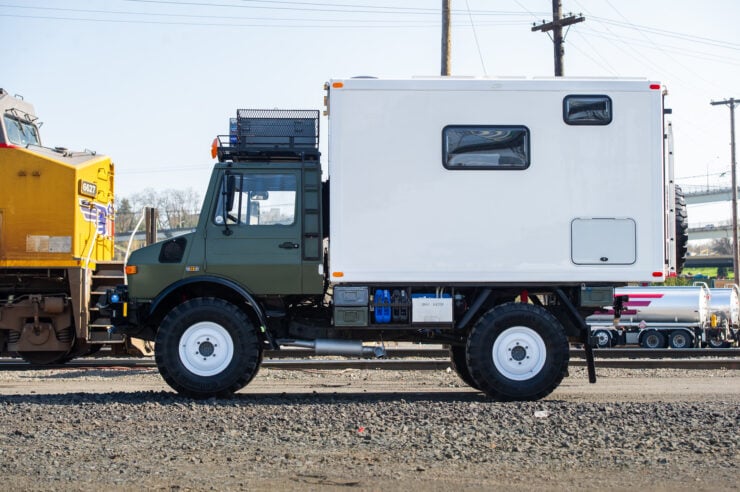
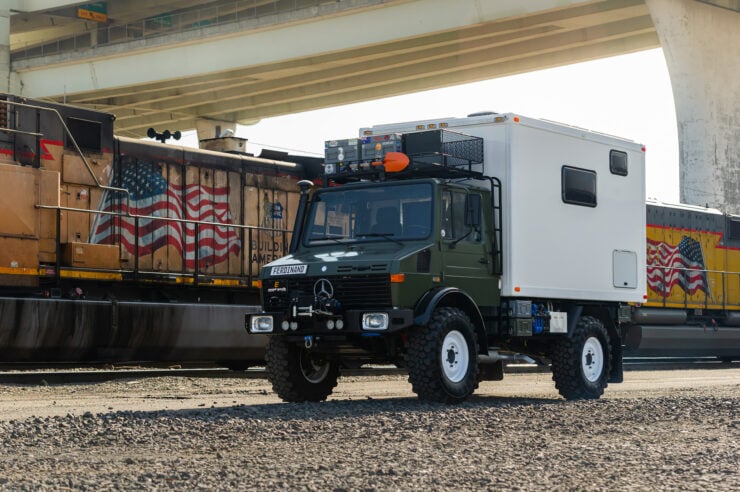
Images courtesy of Bring a Trailer

